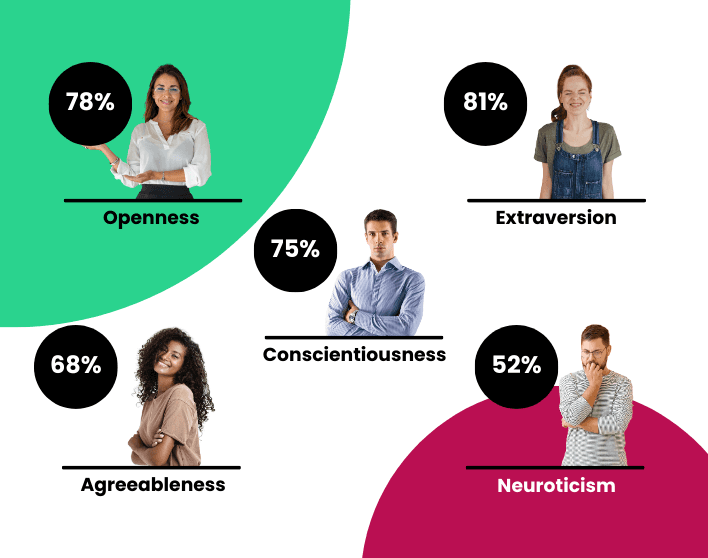The Bryq Team
HR Experts
You’ve surely used a referral system as part of your hiring strategy before. Nearly half of employers say that their most reliable source of talent comes from employee referrals. It’s easy to see why - there are great benefits that come from using this hiring strategy! That being said, it’s far from a perfect system. There is a dark side to referrals that may be hindering your company from seeing its full potential and reaching its DEI efforts.
In this blog, we weigh the pros and cons of referral programs, and offer solutions to avoidable hiring issues that might appear because of them.
Why Referral Programs Can Work
There’s a reason referral programs are so popular amongst companies. Implementing a referral system within your organization comes with many benefits.
One benefit of a referral program is it reduces time-to-hire. If you are relying on great candidates coming through in the form of a referral, it eliminates the need for dozens of job postings and sorting through resumes. Of course, there are many other ways to reduce time-to-hire that might be more in-line with your diversity efforts (but more on that later!) Despite this, having a steady referral program in place will help move things along more quickly.
In addition, these programs also help with employee retention. Since referrals are usually people your current employees already know, they’re more likely to stay on board with the team so long as their connection does. According to research, 45% of your referral hires are likely to stay with the company. Those are great odds! Of course, you’ll also need to be careful about referrals following their connections out the door when they decide to leave the company.
The Challenge with Referrals
While referrals do offer many benefits, there are also pitfalls that employers need to avoid when using referral programs.
Firstly, it’s important to not take referrals simply because it might make things easier. If an employee who isn’t a successful performer brings forward a referral, is it wise to hire an individual who is likely to perform similarly? Of course, it’s important to put bias aside by properly assessing them first or even interviewing them before rejecting them, but it’s a risk you take when hiring referrals from an employee who might not be a top performer.
Referral programs might also spark conflict within your workplace if not managed properly. Let’s begin with an example. Let’s say two employees both bring forward a referral for the same open position. You can only choose one, assuming both are qualified. You are going to have to carefully explain why you made the decision you did. By rejecting referrals, you risk upsetting employees or lowering office morale. You also run the risk of being accused of favoritism if you choose one employee’s referral over another’s. If a fire starts, be sure to contain it. You can alleviate any workplace conflict with proper planning and a good HR team.
Most importantly, referrals may be stopping diversity from occurring within your organization. If your hiring process is based on a referral program, you’re getting similar employees to what you already have. Referrals are typically friends, family, old classmates - people you already know. If you’re hiring people who are all alike to one another, you may just be building an army of office clones who all think and work exactly the same. It’s easy for groupthink to happen in environments like this. Unconscious bias roams freely amongst teams who are carbon copies of one another, and it prevents groups from thinking outside the box. How are teams so uniform in their thought process supposed to innovate? Diversity allows innovation to flourish, and a referral program might hinder that from happening.
Solutions
One solution would be to have referrals enter the hiring process and follow the same process as non-referrals. Some companies automatically go to the interview stage with referrals. Not only is this unfair to non-referrals who might be more than qualified, but it’s biased. To eliminate bias and promote equity and diversity, you can have every candidate follow the same exact recruitment process no matter how they’re sourced.
The huge problem with referrals is that they don’t exactly help with diversity efforts. They tap into unconscious biases that we all have, no matter who we are. Is there a way to fix this? Diversity training. Unconscious bias often goes unrecognized because we don’t realize we have it! Implementing programs that help our employees acknowledge their inner biases will help them make better referrals in the future.
Additionally, using talent assessments that eliminate bias from the hiring process helps. A talent assessment can tell you whether or not an employee is a good match, so cross checking referrals with assessment results helps you make better, more informed hiring decisions.
How Bryq Can Help
Like most things in life, referrals come with both pros and cons. Just because referrals could have negative consequences doesn’t mean that you should completely remove them from your hiring process. If you have employees who are trustworthy star performers, it’s a great idea to take their referrals into consideration. You just need to make sure that your decisions are based on objectivity - not favoritism.
This is where Bryq comes in. By having referrals take a talent assessment like Bryq, you are ensuring that any decision you make is objective. We have used I-O psychology to create science-based assessments that measure a candidate’s personality traits and cognitive skills. Then, we are able to compare these results to any given job role to see if a candidate is a good match for it. So you have a referral? Sounds good. Have them take a quick Bryq assessment so you can see if they truly are a good fit for the team. Think of Bryq as an intuition checker - a scientific, objective way to trust a gut feeling. Assessments like Bryq help companies continue to grow their diversity efforts and build upon their culture.
Need more details? Feel free to request a demo with our Customer Success Team. We are here to help you out with whatever you need. Next step? Refer a friend to us. Happy hiring!








